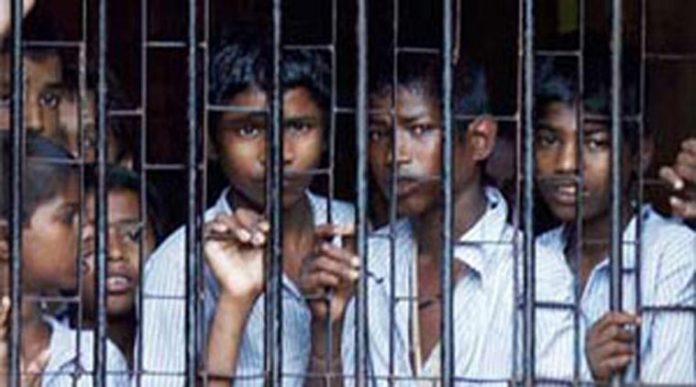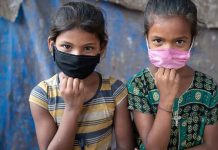This article is written by Seep Gupta, from the Institute of Law, Jiwaji University. This is an exhaustive article which deals with the Procedures regarding the trial of juvenile offenders.
Table of Contents
Introduction
Nowadays, juvenile delinquency is increasing in India at a faster pace. In recent times juveniles are indulging even in heinous crimes such as gang rape, murder, and kidnapping. It’s a disturbing trend that instead of building a secure and positive future, these young and innocent children are opting for the world of crimes. According to the National Crime Record Bureau in the year 2013, 43,506 crimes were registered against minors under the Indian Penal Code 1860, and 60% of crimes were committed by those minors who are between the age of 16-18 years of age. Juvenile delinquents are responsible for 2.5% of murders and 5.4% of rapes.
This trend is horrendous because children are a gift of god and their mind is prolific but unfortunately, there are many social elements that are imbibing criminal traits in young and innocent children and are corrupting their minds. This is an exhaustive article which deals with the procedures regarding the trial of juvenile offenders.
A juvenile under Juvenile Justice Act 1986
Juvenile Justice Act defines a juvenile as a child or a person who is not 16 years of age in the case of boys and who has not completed the age of 18 years old in the case of girls. The Juvenile Justice Act 1986 was repealed by the 2000 Juvenile Justice Act and after this amendment, the age of minor girls and boys has changed. The minimum age fixed for both genders is 18 years of age. Now, after the amendment in 2000, a juvenile is said to be a person who has not completed the age of 18 years during the time of the commission of an offence. It is given in Section 2(12) of the Juvenile Justice Act.
Recently, in the 2015 amendment of Juveniles Justice and Care Act, if a heinous offence is said to have been committed by a 16 years old then the juvenile justice board shall conduct a preliminary assessment with regards to a child’s physical and mental capacities, his abilities and the circumstances in which the particular offence is said to have been committed.
Procedure regarding the trial of the offenders
Brief information regarding the Juvenile Justice Act
The law related to crimes committed by juveniles or by persons who are below the age of 18 years of age are governed by the different laws and provisions which contain a lot of factors and elements.
There is a separate Juvenile Justice Act which looks after the juvenile delinquents and provides appropriate punishment for them. It provides safeguards and guidelines related to the children in conflict with the law. It has replaced the word, ‘juvenile’ with ‘children in conflict’ to remove the negative connotation associated with the word juvenile. Many new words that were not there in the earlier act, are included in the amended act such as heinous, abandoned, orphaned, petty, and serious offences committed by the children.
Police Arrest
When there is an FIR or complaint against any child who is below 18 years of age, he/she will be presented in front of a juvenile officer or a child welfare officer who has special powers given by the Juvenile Justice Act. After this, an inquiry will be carried out to see whether the offence committed by the minor is a petty offence or a heinous offence. Based on the type of the offence, the juvenile justice board may decide the following punishments for a child in conflict with the law-
- Advise the child and let him/her go.
- Ask the child to go through counselling and to find his/her parents.
- Ask the child to do community service
- Release the child on probation for the account on his good behaviour.
For the child above the age of 16 years old and who has committed a heinous offence then the child will be held as an adult in trial with the exception that the death penalty and life imprisonment will not be given to them.
Trial
Juveniles are not known as, an adult accused person is generally known of, i.e. as criminals or as adult offenders but rather they are known as delinquents. A delinquent is a child who commits an offence and is between the age of 16-18 years of age. This is primarily a basic difference between adult offenders and juvenile offenders. Juvenile offenders have adjudication hearings instead of trials.
Juvenile offenders do not have the same constitutional rights as adult offenders. Their hearing is usually done by the judges themselves and in case of adult offenders, the trial is being done by their peer judges. Juvenile delinquents do not have rights such as the right to get bail or to have a public trial. These constitutional rights are only for adult offenders.
Juvenile records are mostly sealed so they won’t be liable as criminals for a lifetime and to remove the stigma and criminal label from them, most of the juvenile criminal records are erased once they turn 18 if they meet certain criteria. Juvenile courts provide extra protection to the juveniles as compared to adult courtrooms. There are many rights and protections that are granted to juvenile delinquents such as the right to issue a notice to them about their delinquent acts before the adjudication hearings, right to have an attorney or public prosecutor if they can’t afford them and right to release pre-release if their delinquent acts are not that heinous and violent.
Judges of juvenile courts must adhere to all the guidelines of the Act and should always take decisions in the best interest of the child. After adjudication it is the duty and responsibility of the judge to decide and to classify his crime as petty, serious, or heinous and what punishment is appropriate based on it. This is something known as ‘disposition’.
In the case of adult offenders, the main objective of the trial and criminal offenders is punishment so as to serve as a deterrent to fellow offenders. But, this is not in the case of juvenile offenders, the main objective of trial in case of juvenile courts is to make them aware of their crimes, to preach them and to rehabilitate them so they can live a good and productive life.
According to the recent 2015 amendment in the Juvenile Justice Act, now 16 years old who have committed some heinous offence, they will be treated as adults in adult criminal courts, not in juvenile courts. So, this is the basic objective and procedure for trials of juvenile offenders.
Observation homes for juvenile delinquents
Observation homes are the institution where neglected children and juvenile delinquents are kept until their decision is pending in the juvenile court. They are loaded with all kinds of facilities and protection for juvenile delinquents. It is the place to imbibe good thoughts and moral values to juvenile delinquents so as to deter them from becoming repeat offenders. Observation homes are present in every district or group of districts and are managed by the state government. Education and learning are provided to delinquents at observational homes so as to secure their bright future. It is mentioned in Section 47 of the Juvenile Justice and Protection Act 2015.
Special Homes for juvenile offenders
Special homes are also present in every district or group of districts and are managed by the state government. The main aim or objective of the special aim is to rehabilitate juvenile delinquents. Various services are provided by the special homes which provide the rehabilitation and socialization of juvenile delinquents. It is mentioned in Section 48 of the Juvenile Justice Act 2015.
Provisions regarding juveniles in Indian Penal Code, Criminal Procedure Code and in Indian Constitutional Law
A juvenile is a person who is a minor or basically who is below the age of 18 years of age according to the Juvenile Justice (Care and Protection) Act 2000. A child’s mind is capable of grasping many minute things which often adults fail to grasp or recognize. A child’s mind is versatile and prolific and there is a vast difference between the mentality of an adult and a child. So, because of these vast differences, there is a need for special kinds of provisions for juveniles in the Indian legal system.
Provisions related to Indian Penal Code 1860
In the Indian Penal Code 1860, it defines that nothing is an offence which is done by any person under the age of seven years. This principle is known as ‘Doli Incapax’. This is given in Section 82. According to Section 83 of the Indian Penal Code, nothing is an offence which is done by a child above seven years of age but under twelve years of age if the child is unable to judge the nature, conduct, and circumstances of an offence. In such cases, judges often use a maturity test as a criterion to check whether a child is unable to deduce the gravity of an offence or not.
Section 89 of the IPC provides protection by saying that nothing is an offence which is done in good faith or for the benefit of the child either by the express or implied consent of his guardians or someone who is by law responsible to take care of him.
Provisions related to the Criminal Procedure Act of 1973
There are many provisions related to juveniles and child protection which are given in the Criminal Code of Procedure 1973 too. According to the Section 27 of the Criminal Code of Procedure 1973, if an offence has been committed by a child under the age of sixteen years of age which is not punishable with death punishment or life imprisonment may be tried with the judge not lower than the rank of chief judicial magistrate first class or by the metropolitan magistrate or by any court empowered with the Children’s Act 1960 or any act which provides for the treatment, protection, education, and rehabilitation to the juvenile offenders.
Provisions related to Indian Constitutional Law
The Indian Constitution also provides special provisions for children below the age of eighteen years. According to Article 21(a) of the Indian Constitution. This Article has been inserted recently by the 86th Amendment 2002 of the Indian Constitution. According to it, it is the duty of the government to provide free primary elementary education to all children up to 14 years of age. Article 45 also says that the state should provide early childhood care, nourishment, and assistance to all the children below the age of six years.
So, these are some of the provisions related to juveniles or children which are mentioned in the different statutes of Indian Law.
Case Laws
Delhi Gang rape Case 2012
This is a very notorious and infamous case also known as the Nirbhaya gangrape case. In this case, a paramedical student was brutally gang-raped by 6 men on a moving bus in Delhi. One out of 6 members was a minor. This was a landmark judgment that compelled the Supreme Court to ponder over an important question that a juvenile below the age of 18 years can be treated as an adult for the commission of a heinous offence? After this important verdict, an amendment was made in the Juvenile Justice Act in 2015 that a juvenile below the age of 18 yrs but above the age of 16 will be treated as an adult offender.
Mercedes Hit and Run Case 2016
After the 2015 amendment in the Juvenile Justice (Care and Protection of Child) Act. In this case, the Delhi high court treated a minor who was 4 days short of being 18 years old in a hit and run case where the accused killed a marketing executive who was 32 years old. But, the Supreme Court reversed the Delhi Court decision and treated the offender as a juvenile.
Conclusion
Juvenile delinquency has become a major threat now. Special provisions and measures are required to extract the young children from the trap of a vicious world and to encourage and imbibe moral cultural values in the children and to divert their mind into a more positive pathway. This will provide them with a secure future.
References
https://t.me/joinchat/J_0YrBa4IBSHdpuTfQO_sA
Follow us on Instagram and subscribe to our YouTube channel for more amazing legal content.
 Serato DJ Crack 2025Serato DJ PRO Crack
Serato DJ Crack 2025Serato DJ PRO Crack











 Allow notifications
Allow notifications


